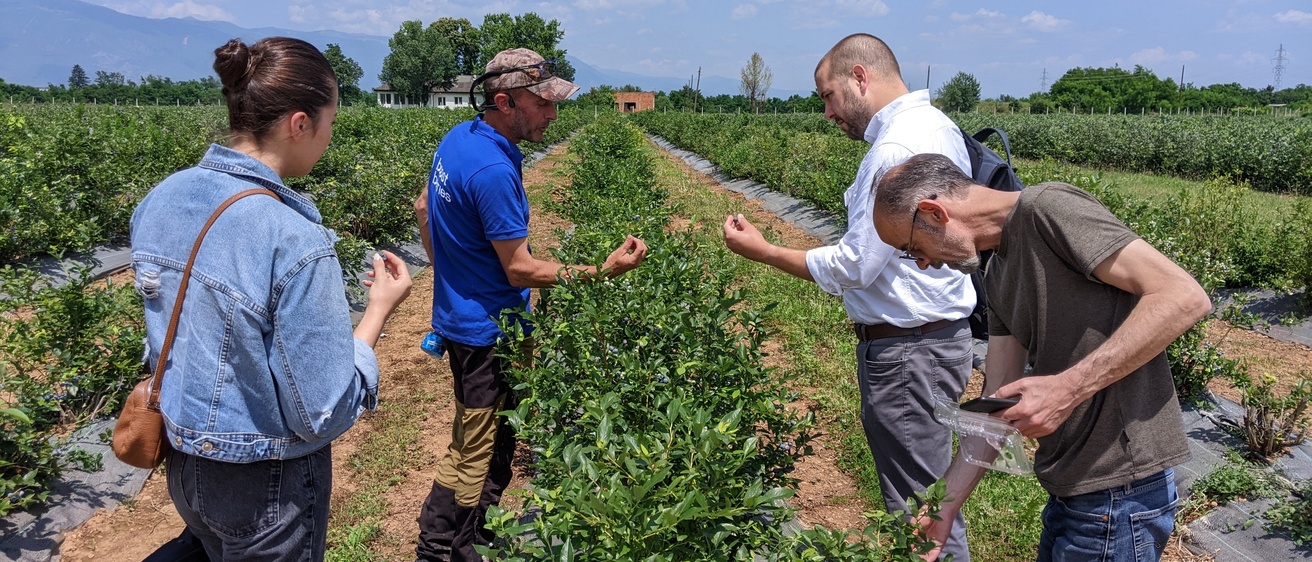Information and Communications Technology (ICT) and agriculture businesses in Kosovo are working to create pipelines for talented university students to help their businesses thrive.
Internships are a valuable gateway for students to gain professional development experience, learn about current trends in the field, and establish connections with industry-leading companies – all while pursuing their studies.
USAID's Private Sector Partnerships to Strengthen Higher Education activity implemented by the University of Iowa (UI) in partnership with Iowa State University (ISU) and the Kosova Education Center (KEC), supports successful collaboration between ICT and agriculture students and businesses in Kosovo. To align efforts with industry needs, participants are meetings with leading ICT and agriculture businesses, exploring their existing internship programs, training, and practices.
Iowa experts are collaborating with their Kosovo colleagues and university staff, students, and companies to learn what is needed to make the most of internships. The customized internship resources in development will help students learn what it takes to succeed in a work environment, align student and industry expectations, and ease administrative challenges that businesses can face when implementing an internship program.
Chris Kromphardt, career readiness and success coordinator and instructor at the UI College of Education, met with stakeholders to gather information about expectations and goals. With Kosovo colleagues, he conducted focus groups with students at the three partner universities, led workshops with career services staff, and met with representatives from various ICT and agriculture businesses.
“The meetings were invaluable to learn how to help support our goal of advancing Kosovo’s economic growth and competitiveness in the region. Rather than trying to produce a one-size-fits-all model for internships and experiential learning, we wanted to hear for ourselves what internships are like in Kosovo and what they can be,” says Kromphardt. “Also, because we spoke to many of the people who provide and participate in internships, we were able to pass along information we had learned to get everyone involved on the same page.”
– Chris Kromphardt, career readiness and success coordinator and UI College of Education instructor
The meetings revealed that both students and businesses saw the benefits of well-executed internships. To make a structured process, Kromphardt is leading the development of online courses that will help prepare students and businesses alike. The courses will combine knowledge about current best practices for internships by businesses in Kosovo with instructional design principles for online learning.
“We learned a great deal about how to customize the courses for the unique context in Kosovo. We want to make the courses informative and user-friendly, and I feel like we are well prepared to deliver on those goals,” says Kromphardt. “These courses will be accessible to all three stakeholders, equipping them with the necessary skills to collaborate efficiently. Our aim is to ensure the smooth execution of every stage of the internship process, including position advertisement, memorandum of agreement design, progress monitoring, experience documentation, reflection, evaluation, and, ultimately, the cultivation of long-term professional relationships.”
The courses for students, university staff, and businesses will be available online, allowing participants to complete them at their convenience. These courses will be created and finalized through a collaborative process involving professors and business representatives who have direct experience with handling internships. The Private Sector Partnerships to Strengthen Higher Education activity is dedicated to designing resources and providing support in close cooperation with partners. The goal is to assist universities and businesses in building upon their existing practices and strengthening their channels of cooperation to maximize the benefits for students.
